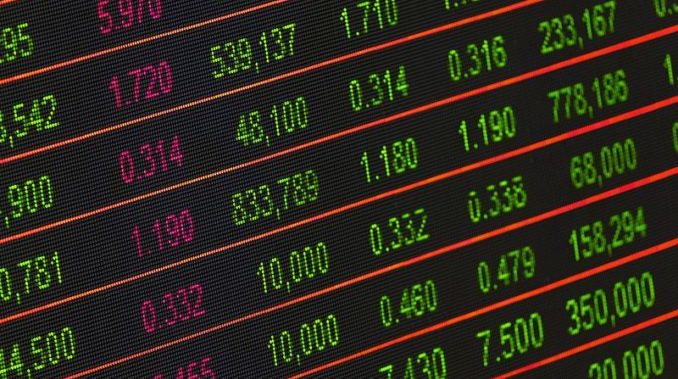
Shares of Gamestop have soared in the last week, as investors, spurred by conversation on a Reddit subgroup devoted to stock market investing, began buying into the business. The stock jumped far beyond any reasonable pricing, due to a trap that hedge fund managers had set for themselves.
Gamestop is one of a number of businesses which had been seeing steady declines even before the COVID-19 crisis. Although electronic gaming has become a standard entertainment format (to the point of e-sports becoming a prominent worldwide competition style), Gamestop’s business model of providing a hub for gamers to purchase new products has been undermined by the growth in electronic purchasing. Given the choice between going into Gamestop to purchase the latest first person shooter for the current iteration of the Sony Playstation or simply downloading it to their console and having it available for immediate play, many are selecting the second option.
It’s not all bad for Gamestop. Much as the rise of the e-book did not signal the complete death of the book industry (as had been predicted by some armchair futurists) because people enjoyed having a physical item, the same holds for games. Gamestop also entices potential buyers by offering exclusives to those who purchase from them (especially via preorder): exclusive characters, weapons, special abilities, play scenarios and more. Their demise, while widely predicted, is hardly certain.
Still, the “widely predicted” resulted in many money managers treating the slow losses for the company as a sure thing. They sold short… and the investors, expecting that this would happen, bought shares. What this meant is that the investors would be required to have enough shares to cover those sales at the end of the day.
Let’s do some very quick, very simple math to explain. It’s not completely accurate, but treat it like the Bohr model of the atom… accurate enough to explain the general point.
Fund manager A wants to make $100 on Gamestop. They short-sell 100 shares when it’s at $20… they don’t actually have the shares, but they enter into a legal contract saying they’ll have them at the end of the day… and when it drops to $19, they sell those borrowed shares. Using their established credit, they were able to make money off of the losses from that company.
Multiply the numbers by a factor of millions, and you get what’s been happening. Short-selling 100 million shares at $20, then selling when it goes to $19… a quick $100 million made. Sure, it’s a gamble, but it’s not much of one.
Enter the day traders. Coordinating, they arranged to buy a bunch of the stock at a time when they believed the fund managers had short-sold. By seizing the stock, the fund managers were left with two options: default, which would bring with it massive penalties; or buy the options at whatever prices the new owners placed upon their recent purchases.
If you watched the movie Trading Places, you have an idea of what happened next. Some small investors made a lot of money, and some big managers were ruined.
Except… that’s Hollywood, not real life. In real life there are an array of secondary consequences and the people abusing the system often get away with it.
Many fund managers and other large investors have previously arranged for bailouts from banks and governmental entities and, while they’re going to face a penalty and new protections are likely to be put into place, most of them aren’t going to be bankrupted. It pays to have well-connected friends.
The immediate losses are going to be distributed in part to average investors and, via inflationary actions, to those who hold US currency, both domestic and internationally.
New restrictions will ensue. Some of them will be against excessive short-selling, although the possibility of such is one of the undergirding mechanisms that supports the overall market. Short-selling itself will not suddenly go away, there can simply be limits which are expected to be put into place… very welcome limits, by my lights, although that will likely trigger its own set of concerns (such as large investors getting to participate in the short-selling, squeezing out small investors). Also to be expected will be rules curtailing some of the no-fee external investment groups’ actions.
There will also be a loss of faith in the market, overall, and with that may come a further decrease of foreign investment. This is a concern for people like me, who believe that the market is currently greatly overvalued due to more than a decade of low-interest loans, operating grants, and direct investment by the Federal Reserve.
My wife, who has become very suspicious of dramatic change spurred by conversation on internet forums, has been speculating to me of the possibility that this was triggered by a foreign enemy seeking to undermine our financial markets. I like to debunk conspiracy theories, but I can’t wave that aside; it is a reasonable possibility, although very far from a certainty.
The things I know for certain is that it’s nothing I’m in the mood to cheer. I’m seeing some declare that it’s “the new Occupy”, “taking down Wall Street”. AMC, another threatened company, has already seen a swing upwards similar to the Gamestop spike, and it’s to be expected that further engineered jumps will follow for similarly endangered stocks. There’s some elation at the notion of sticking it to the people who’ve profited off of the failure of others. But those generally aren’t going to be the people hurt by this, and after four years of seeing people cheer their own decline in order to reap the tears of their enemies, I’m simply being shown more of the same, this time with the anti-capitalists energizing the populist rabble.
